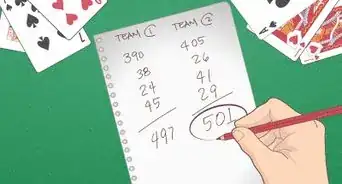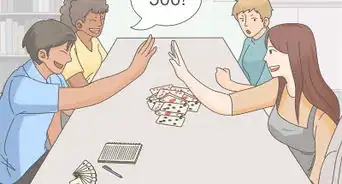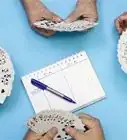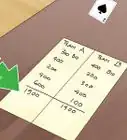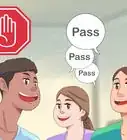This article was co-authored by wikiHow Staff. Our trained team of editors and researchers validate articles for accuracy and comprehensiveness. wikiHow's Content Management Team carefully monitors the work from our editorial staff to ensure that each article is backed by trusted research and meets our high quality standards.
There are 10 references cited in this article, which can be found at the bottom of the page.
This article has been viewed 21,980 times.
Learn more...
Steps
Reading the Deck of Cards
-
1Differentiate between the 4 suits in a Spanish deck. Instead of spades, hearts, diamonds, and clubs, a Spanish deck of cards is made of up 4 different figures, each of which has its own name. There are golden coins, called oros; there are glasses (or cups), called copas; there are swords, called espadas; and there are sticks (or clubs), called bastos.[1]
- The ace of swords and the ace of sticks are the 2 highest ranking cards in the deck. Though they hold a numerical value of 1, they will trump any other card because of their rank.
-
2Recognize how the deck is assembled. A Spanish deck is made up of 40 cards instead of 48. This is because there are no 8s or 9s in the entire deck. There are aces through 7s, each of which holds a numerical value that matches the number on the card. There are also face cards, which hold no numerical value.[2]
Did You Know? Many South American countries have their own variation on how they play Truco. Argentinian Truco is by far the most popular.
Advertisement -
3Memorize the names for the face cards. The jack is called the sota and has a number 10 in the upper corner; the horse (or knight) is called the caballo and has a number 11 in the upper corner; the king is called the rey and has a 12 in the upper corner. Remember, the face cards have a 0 point value, but they rank higher than many of the numerical cards, which means they can often win tricks.[3]
- Each deck may have slight variations on what the face cards look like, but if you pay attention to the numbers in the upper corners, that should keep you from getting lost.
-
4Learn the order of cards from highest ranking to lowest ranking. This will be important when you’re trying to win individual tricks during the game. Follow this ranking order from the highest to the lowest to determine who wins a trick:[4]
- Ace of swords; ace of sticks; seven of swords; seven of golds; all 3s; all 2s; ace of golds; ace of glasses; all kings; all horses; all jacks; seven of glasses; seven of sticks; all 6s; all 5s; all 4s.
Setting Up the Game
-
1Play with 4 people and pair up with the person sitting opposite you. Traditionally, Truco is played with 4 people and each person has a partner. You can talk to your partner throughout the game, but keep your cards a secret from your opponents.[5]
- Play Truco with 2 players by following the same rules, except you obviously won’t have partners.
- Play Truco with 6 players by dividing into teams of 3.
-
2Sit around a table with partners facing across from one another. Position yourself so that you can clearly see your partner’s face. If you have enough space, put a little bit of room between yourself and the people on either side of you so that they can’t easily glance at your cards.[6]
- If there are 6 players, sit alternately around the playing table so that each of you can see your teammates’ faces.
-
3Prepare signals with your partner so you can communicate nonverbally. Secret signals to let your partner know what cards you have in your hand can help you win more tricks. Before the game starts, go somewhere private and hash out what signals you’ll use for the higher ranking cards.[7]
- For example, if someone has the ace of swords or the ace of sticks, they could thumb their nose or tug on their left ear.
- When giving signals during play, try to do it when your opponents aren’t looking; otherwise, they might catch on to your system.
-
4Deal each player 3 cards to start the game. Pick who the dealer is however you want to—for example, you could choose the oldest player in the room, the person who most recently had a birthday, or the person with the smallest shoe size. Have that person shuffle the deck and deal each player 3 cards.[8]
- The person to the right of the dealer will start gameplay; though as you’ll see, there are some variations as to what might happen right off the bat that could prohibit the game from starting immediately.
Playing and Betting
-
1Say “flor” out loud if you have 3 of one suit in your hand. Flor has to be stated before the first trick has been played; if someone else has called out “envido” (which means they are betting higher stakes on their hand), the envido bet is canceled out by someone calling flor. Calling flor gets your team 3 points and ends that hand.[9]
- If you and your opponent both happen to call “flor,” add up the numerical value of the cards in your hand. The person with the highest number scores 6 points for their team.
- This particular rule often isn’t used if players are betting real money on the game, but it’s a fun way to get some extra points for your team. Getting 3 of the same suit in a hand is not a very common occurrence.
-
2Bet “envido” at the beginning of a hand to play a mini-version of war. Betting envido will get you 2 points if you win the bet. Your opponents can accept the bet, refuse it, or even raise the bet to be worth 3 points. Lay your cards out in front of you once the bet is accepted and tally up your points. The person with the highest points wins the envido. To score envido:[10]
- If 2 of your 3 cards are the same suit, add their numerical value together and add 20 to that number.
- If your 3 cards are from different suits, add together the numerical value of the 3 cards.
- Face cards are always worth 0 numerical points.
- If you win the hand by having the highest numerical value, you get 2 points or 3 points added to your team’s score, depending on whether or not your bet was raised.
- If two players are at a draw, the leader (dealer) of the hand wins the points.
-
3Play 3 tricks per hand if flora and envido were not said. Each player will lay down their highest card to try and win a trick, and each hand has 3 tricks to be played. The team that wins the most tricks in any hand gets 1 point for their team (not 1 point per trick, but 1 point per deal). Whoever wins the point for their team deals the next hand.[11]
- The hand is a draw if the highest cards thrown down are the same.
Remember: The value of each card isn’t accurately represented by its numerical value, but rather by the ranking that was given in Part 1.
-
4Call “truco” if you think you can win the entire hand. Calling truco raises the point value of the hand from 1 point to 2 points. Truco can be called during the 1st or 2nd trick. Your opponents could fold their hand, accept the bet if they think they can beat you, or they could also raise the bet from 2 points to 3 or 4 points (4 being the maximum).[12]
- Betting truco is a great way to earn some extra points to get to the finish line before your opponents do.
-
5Deal the cards for the next round if you won the previous hand. The person who wins the hand deals the next round and is the “leader.” Because minimal points are won during each hand, there are plenty of opportunities for everyone to become the dealer at some point.[13]
- Even though the hands go quickly, do take a minute to reshuffle the cards before each round.
Keeping Score and Winning
-
1Use dry beans to keep score in the traditional way. Keep a small bowl of 30 beans on the table and appoint 1 person from each team to be their team’s official scorekeeper. At the end of each trick, have the scorekeeper take beans from the bowl to represent your team’s score. Keep these beans in front of the scorekeeper on the table to that everyone can see the tallies.[14]
- If you don’t have dry beans, you could use other small tokens.
Tip: If you’d rather just keep score with pencil and paper, that is okay, too! Just appoint one person to be the official scorekeeper instead of having 1 person from each team.
-
2Complete the first half of the game by getting 15 “bad” points. In the game of Truco, the total points you need to win (30) are divided in half. The first 15 points are called the “bad” points. Once you cross 15, all your points automatically transfer to “good” points, or "buenas."[15]
- This distinction is somewhat arbitrary because the first person to 30 points wins. If the game ends and you only have “bad” points, that doesn’t change anything in future games.
-
3Start earning “good” points once you have more than 15. After you cross the threshold of 15 points, you’re on your way to winning the game! It’s possible for both teams to have “good” points at the same time, but the first one to get to 30 will be the winner.[16]
-
4Win the game by getting 30 points. Some groups will play the best out of 3 games, prolonging the time spent playing. Others will just play to 30 and declare that the team who won that game is the ultimate winner. Feel free to make adjustments to how you and your friends play.[17]
- For example, you could decide to play to 15 points if you have an abbreviated amount of time available; or you could decide to play to 100 points—it’s up to you.
- If both players cross 30 points in the same hand, the team with the highest score wins.
-
5Deal with a tie by playing more hands until someone pulls ahead. It’s possible that you and your opponents could both cross 30 points in the same hand and end with the same score. If this happens, play another hand (and then another, if needed) until one team gains more points than the other. That team is the winner![18]
- Having a tie is pretty unusual. Chances are, you won’t run into this situation very often.
Things You’ll Need
- 40-card Spanish deck
- Pen or pencil
- Piece of paper
- Dry beans (optional)
References
- ↑ http://www.ludoteka.com/truco-en.html
- ↑ https://youtu.be/2FF37ysahek?t=110
- ↑ https://www.pagat.com/put/truco_ar.html
- ↑ https://youtu.be/2FF37ysahek?t=241
- ↑ http://www.ludoteka.com/truco-en.html
- ↑ http://www.ludoteka.com/truco-en.html
- ↑ http://www.ludoteka.com/truco-en.html
- ↑ https://youtu.be/2FF37ysahek?t=163
- ↑ https://youtu.be/2FF37ysahek?t=413
- ↑ https://youtu.be/2FF37ysahek?t=278
- ↑ http://www.ludoteka.com/truco-en.html
- ↑ https://youtu.be/2FF37ysahek?t=370
- ↑ http://www.ludoteka.com/truco-en.html
- ↑ https://www.pagat.com/put/truco_ar.html#scoring
- ↑ https://www.pagat.com/put/truco_ar.html#scoring
- ↑ https://www.pagat.com/put/truco_ar.html#scoring
- ↑ https://youtu.be/2FF37ysahek?t=406
- ↑ https://www.pagat.com/put/truco_ar.html#scoring
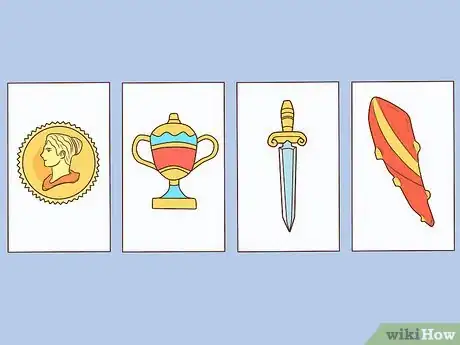
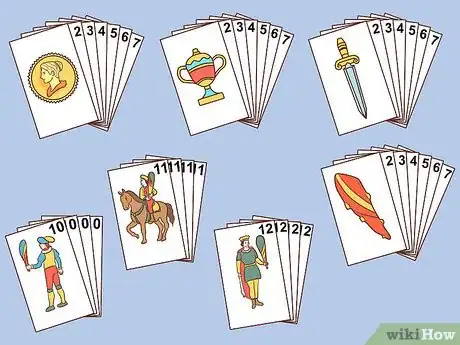
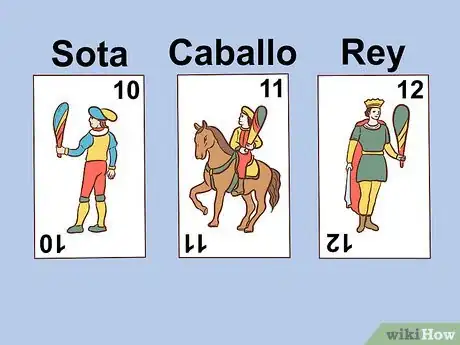
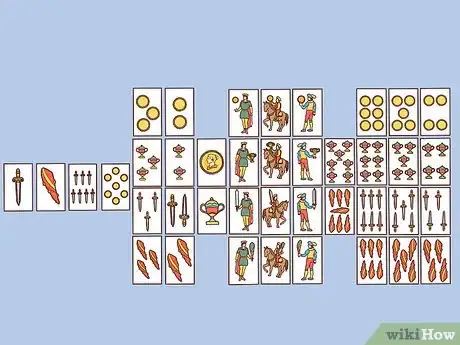
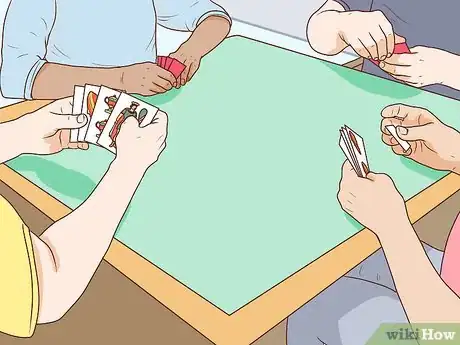
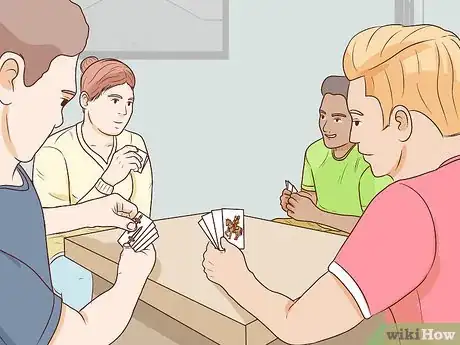
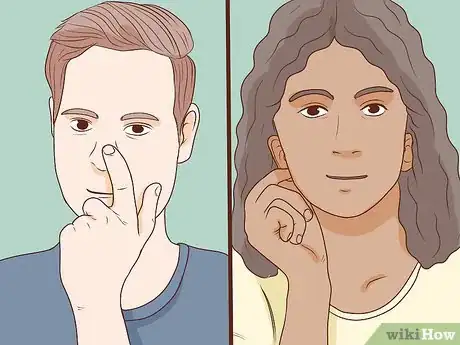
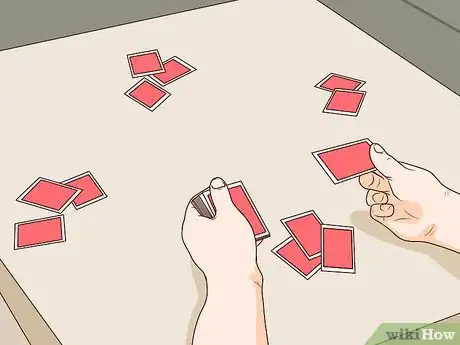
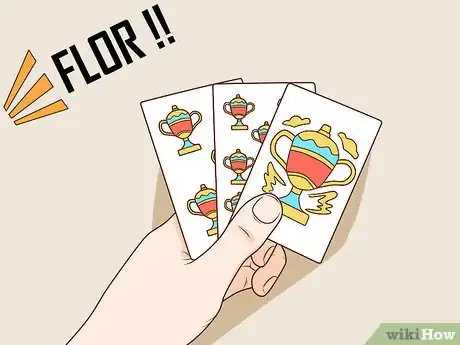
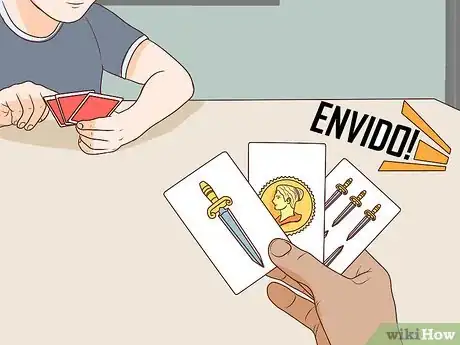
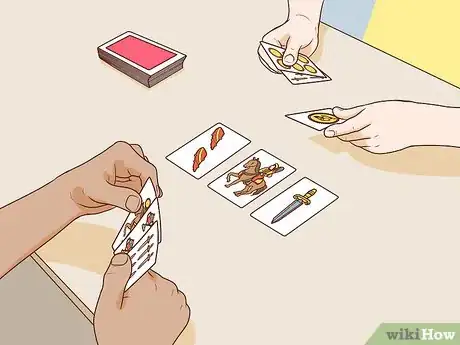
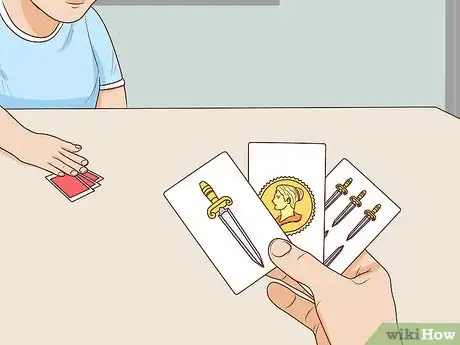
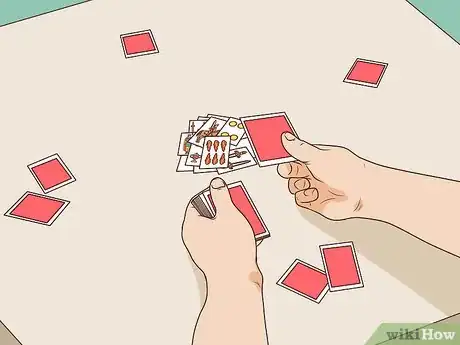
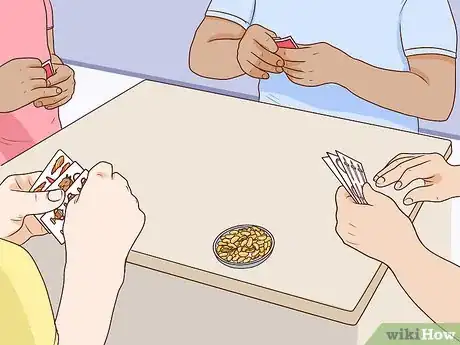
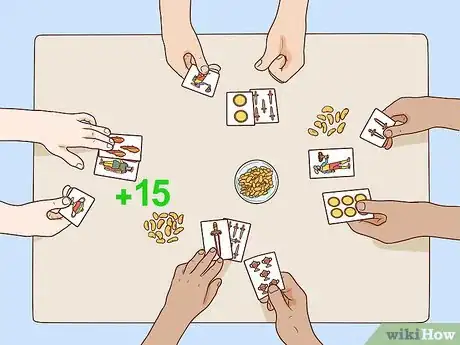
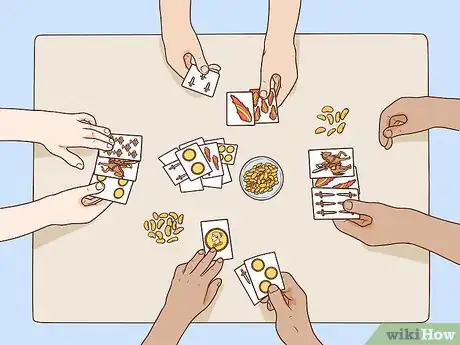
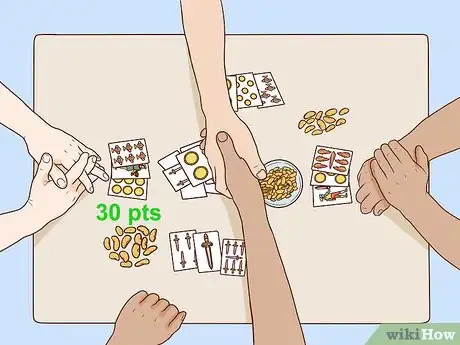
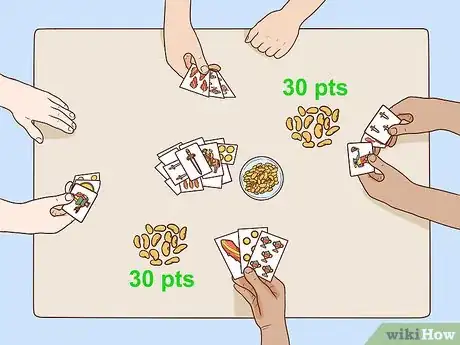
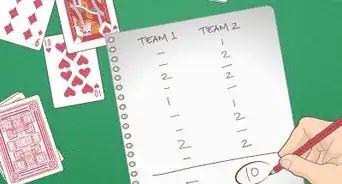
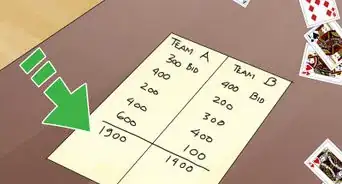


-Step-7-Version-2.webp)
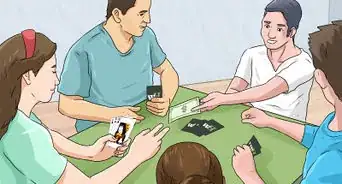
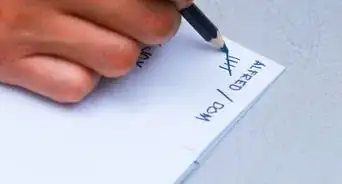
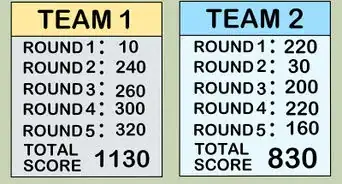

-Step-9-Version-2.webp)
